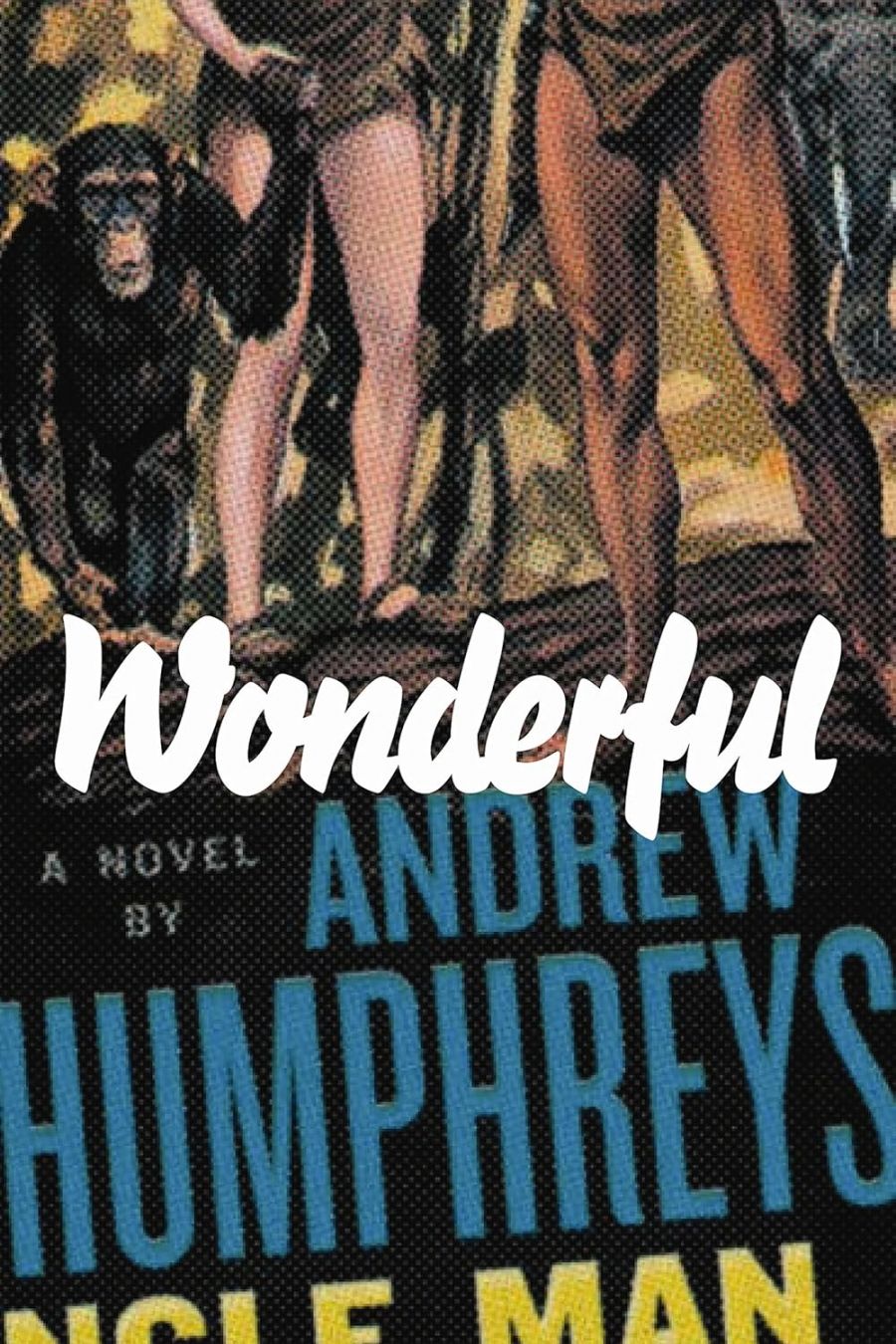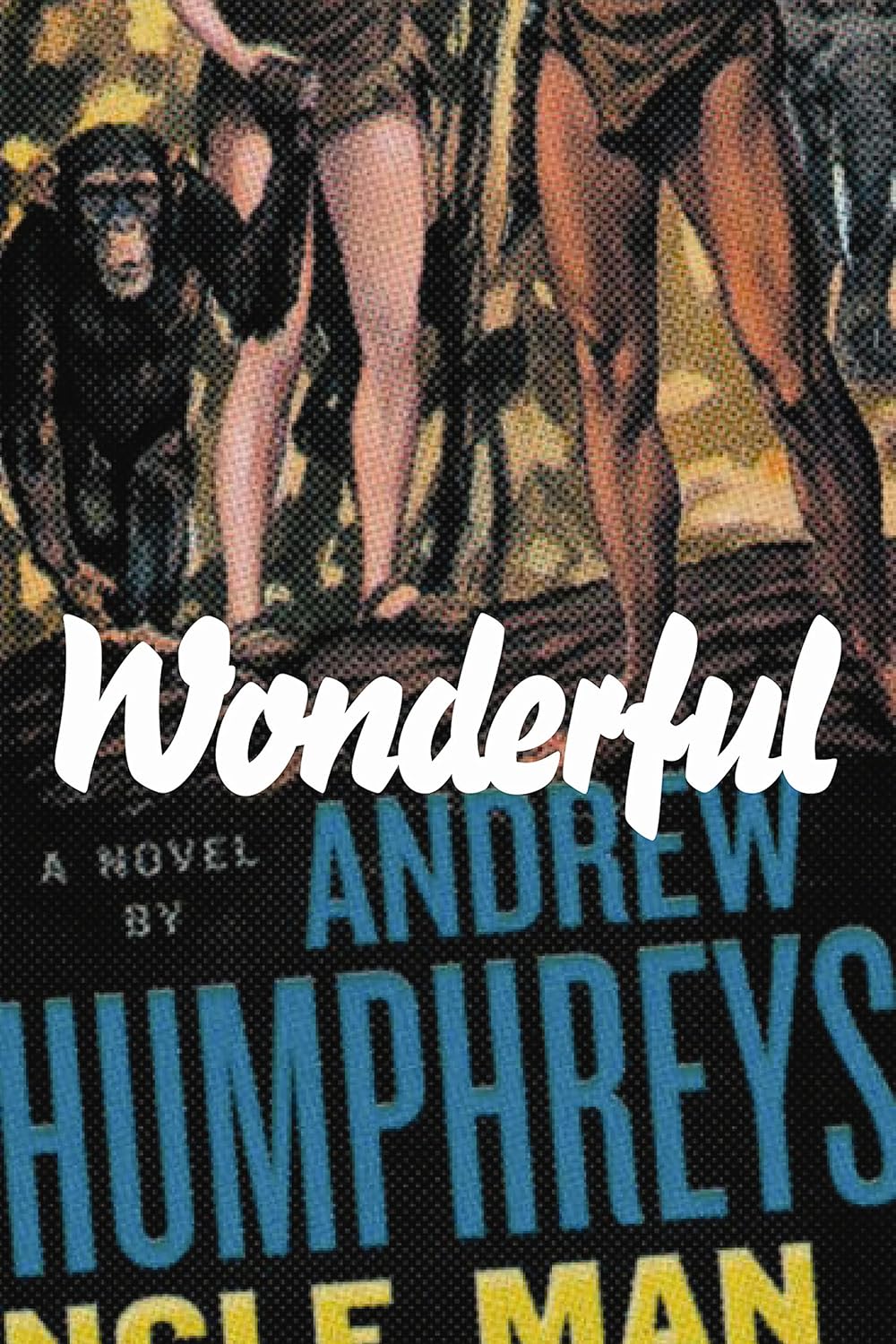
- Free Article: No
- Contents Category: Fiction
- Review Article: Yes
- Online Only: No
- Custom Highlight Text:
An author who calls his book Wonderful is asking for trouble. He is either very confident or unusually foolhardy. Andrew Humphreys’ second novel has some ‘wonderful’ things in it, but it is ultimately too much of a good thing: it is too long, and tries to cover too much ground. I know nothing of his first novel (The Weight of the Sun, 2001), but one thing that strikes this reader is that few Australian novels betray as little of their author’s country of origin as this does. Wonderful could as easily have been written in California or Hungary, to choose two of the novel’s locations. This seems to me to be a matter for praise; there is no reason why Australian novelists should be doggedly bent on explaining their country to their readers. In a grown-up country, authors, like filmmakers and artists, should locate their work and their themes wherever inclination leads them. Nationalism is one of art’s corsets.
- Book 1 Title: Wonderful
- Book 1 Biblio: Allen & Unwin, $21.95 pb, 373 pp
- Book 1 Cover Small (400 x 600):

- Book 1 Cover (800 x 1200):

One of Humphreys’ strengths is his command of other places and idioms. His basic setting is Hollywood in the 1930s, merging into World War II. His protagonist, ‘Doctor’ Jozsef Kiss, has fetched up in the company of a chimpanzee he has acquired in Africa. Arriving full of expectation and hope, Kiss settles into an increasingly fetid hotel room with his hairy chum, and stays there even when Siggy becomes Hollywood’s major animal star. The novel is interested in what propels a somewhat hapless Hungarian inevitably towards America, but Kiss has never thought beyond the goal of establishing himself there, and, once this is achieved with the help of Siggy (Kiss is his trainer), he has nothing further in mind. The novel’s poignant last paragraph articulates his situation: ‘But his dreams were frozen in time ... Without Siggy, he was just another broken immigrant, with no present and no future, and nothing but the past.’
In hindsight, this bleak perception has dictated the novel’s structure. Though most of it is set in a Hollywood we know from old movies, fabled names, and novels such as Nathaniel West’s The Day of the Locust (1939), Humphreys has frequent recourse to chapters set in Kiss’s native Hungary, where he and his incompetent furrier-dentist father are forever flitting to avoid embarrassments. As well, there are flashbacks to Africa, where Kiss begins his international journeying, and where he falls in with a hapless safari party as a medical adviser (a post for which his qualifications are minimal) and with a ship at sea, where the movie-mad chief steward is prepared to tolerate Siggy in Kiss’s cabin because of the promise of stardom Kiss predicts for the chimp. Given Kiss’s past, the reader understands his aspiration and his ultimate emptiness, though these other settings are not realised with the same sharpness as the US of studios, shoddy hotels, and garish restaurants.
Despite the novel’s Old World/New World subtext, and its awareness of how the American dream fails its dreamers, its real pleasures are comic. The ‘conversations’ between Kiss and Siggy are brilliantly handled to offer an insight into the hustling world of Hollywood, where ‘hot’ directors might be on the scrap heap the next week and where agents are at the bottom of the pecking order. These exchanges also provide a satirical commentary on the precarious nature of stardom, as the gin-addicted Siggy frets about being treated as ‘just another jungle nigger’ in the ridiculous films in which he has made his name, or about the threat posed to his pre-eminence by introducing a child into his next jungle picture.
One of the recurring delights of the novel is the insertion of extracts from the ‘screenplays’ of the films in which Siggy makes his name. These extracts cut a lethal swathe through the undergrowth of 1930s genre filmmaking: as well as the jungle films in which Siggy increasingly feels his talents are constrained by stereotypical plotting, there are affectionate and accurate pastiches of such B-grade movie genres as the mad-scientist horror flick, with Siggy in a lab coat; a boxing melodrama, with Siggy as corner man; and the storm-at-sea action film, with Siggy as a drunken travelling monkey. Humphreys’ ear is spot on in the dialogue for this varied programme-fodder, just as it is for the cod ‘reviews’ of these films, as featured in some Maltin-like reference book.
Though Wonderful is not really a roman-á-clef, there is no mistaking some of the legendary figures. Humphreys shows his inwardness with this rich period of Hollywoodiana: in such figures as the crass mogul L.D. Silver (clearly Louis B. Mayer), and the jungle-film hero Herman Hollander and his mate, played by Mary O’Bannion, who are clearly meant to conjure up Johnny Weissmuller and Maureen O’Sullivan. (The name ‘Herman’ may also be a cunning reference to another screen Tarzan, Herman Brix, later known as Bruce Bennett, who is perhaps given a sly salute as ‘Bruce Boyd’ in ‘Aku the Fearless.’) There are also references to real Hollywood names, memorable ones like James Cagney and long-forgotten ones like Franciska Gaal, whose pre-Hollywood career had begun in Kiss’s Hungary.
Wonderful needs pruning (373 pages is too long for its jokey premise), but there is much to enjoy along its idiosyncratic way.


Comments powered by CComment